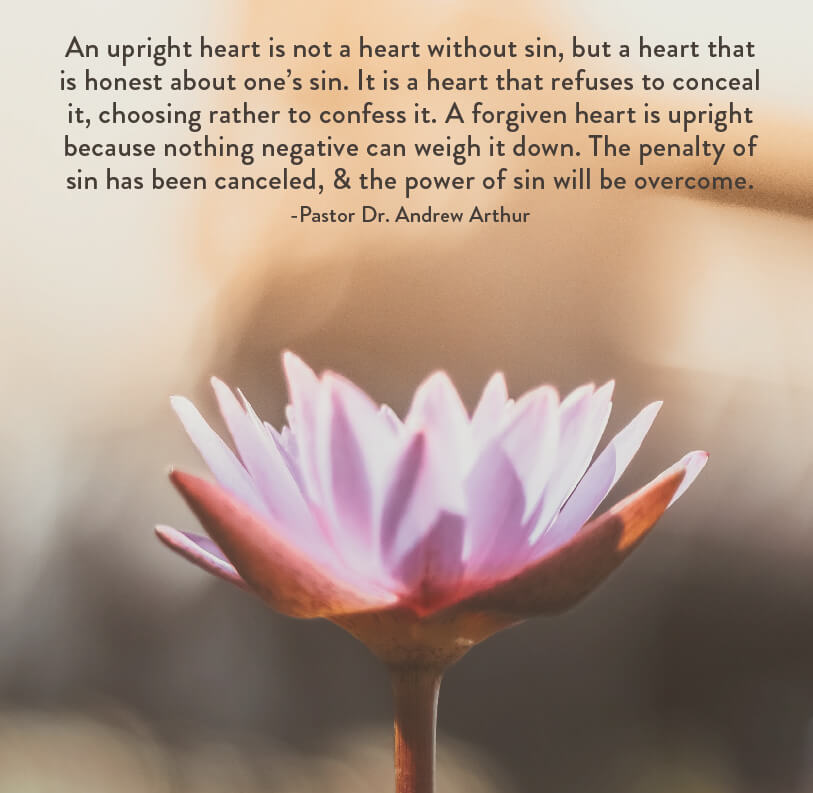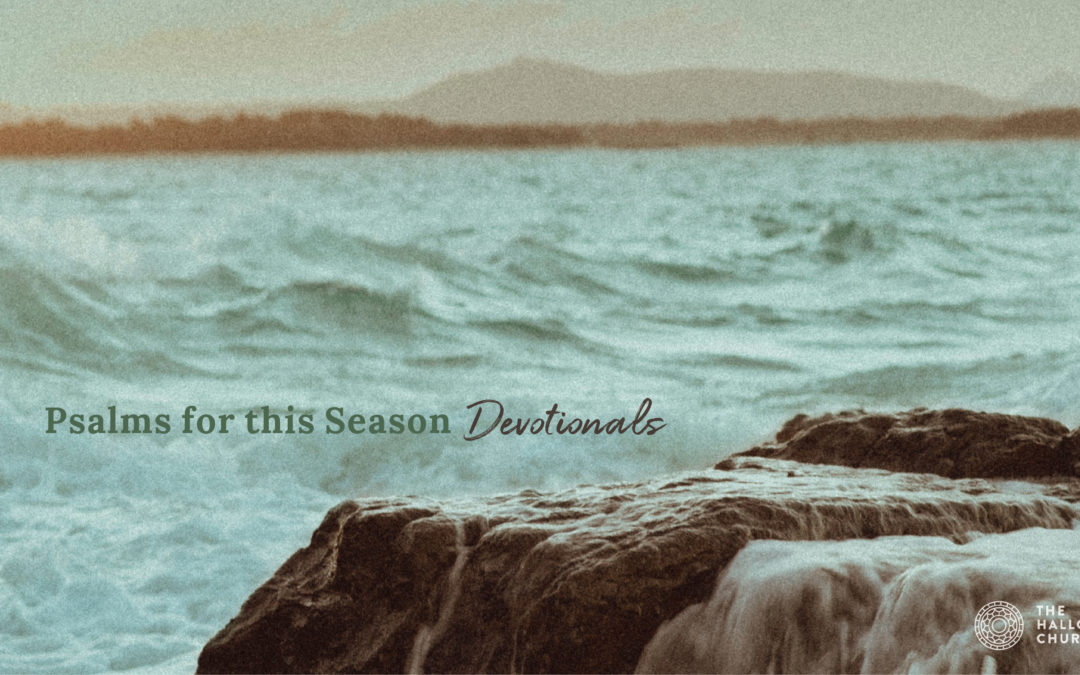Day 9 | Psalm 32
Those who are forgiven possess a joy that COVID-19 cannot touch. They find freedom from tyrannical trials that often enslave the unforgiven in fear. For those who are forgiven know that present afflictions do not represent divine punishment for transgressions. Instead, God’s faithful love surrounds them in Christ where there is now no condemnation (Romans 8:1).
Thus, we remain joyful in the midst of sufferings and hardships. This is part of how the gospel advances through the church in troubling times. For a soul at peace with God cannot be put to shame by a pandemic. So, we declare with David, “Let everyone who is faithful pray to you immediately. When great floodwaters come, they will not reach him. You are my hiding place; you protect me from trouble. You surround me with joyful shouts of deliverance” (Psalm 32:6-7).
Yet, joy remains elusive to those who prefer to conceal sin rather than to confess it. In fact, David describes the adverse affect hidden sin can have on a person. It functions much like a spiritual virus. Bones become brittle. Groaning becomes constant. Fatigue becomes paramount. The guilt of carrying concealed sin is capable of destroying a person from the inside out. Unhealthy spirituality can have a harmful impact on our physiology. Anyone who has ignored conviction and concealed transgressions knows this to be true to some degree.
Confession, then, is our antidote. We acknowledge our sin to God who is eager to forgive. He liberates us from guilt, fear, and shame. The many pains that fall upon the wicked will miss those who are covered by the faithful love of God in Christ. Therefore, we can be glad in the LORD and rejoice. We can shout for joy for we are upright in heart.
An upright heart is not a heart without sin, but a heart that is honest about one’s sin. It is a heart that refuses to conceal it, choosing rather to confess it. A forgiven heart is upright because nothing negative can weigh it down. The penalty of sin has been canceled, and the power of sin will be overcome.
Forgiveness is costly. It is never free. When we forgive people who offend us, we take on the debt their offense caused. We pay it off each time we choose not to harbor resentment or bitterness towards them. We pay it off each time we do not treat them in accordance with their transgression, but instead we treat them with love and kindness.
Jesus used the language of debt when teaching us to pray: “And forgive us our debts, as we also have forgiven our debtors” (Mt. 6:12). Later, he declared, “The Son of Man did not come to be served but to serve, and to give his life as a ransom for many” (Mark, 10:45). He gave His life to pay a debt. Of course, it wasn’t a debt He accrued but one that we accrued. In order to forgive us, He absorbed our debt, taking the hit upon Himself. The forgiver always takes on the debt of the forgiven. In that way, the forgiver always suffers to forgive.
Nowhere is this more apparent than at the cross of Jesus Christ. Since he suffered to forgive us of our sins, our sufferings should not be interpreted as the result of our sins. There is no outstanding debt for those who are in Christ to pay. In Christ, we are forgiven. In Christ, we are free. In Christ, we possess an indestructible joy.
Written by Dr. Andrew Arthur | Lead Pastor | The Hallows Church | andrewarthur.info


